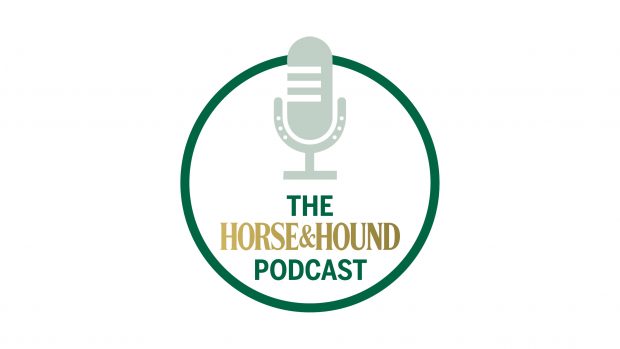Horses create energy differently depending on the type of exercise they are undertaking at that time. Although the horse’s speed will vary during an endurance ride, the majority of the energy will be produced aerobically (when oxygen is used to help produce energy) with the horse performing at a steady speed.
Only at higher speeds, such as during a sprint finish, or strenuous physical exertions, like a steep hill climb, will the horse require anaerobic energy (when the body cannot take in sufficient oxygen to burn fuel during exercise). Because of this, the endurance horse’s diet should be based on slow release energy sources such as fibre and oil.
Hay or haylage and pasture should form the basis of all horses’ diets, including endurance horses. The horse’s hindgut is home to billions of bacteria, which ferment fibre to produce volatile fatty acids (VFAs), which are transformed into fat. Fibre digestion takes a considerable amount of time so absorption of VFAs continues long after a meal has been eaten. The endurance horse can rely on this energy throughout the ride. Alfalfa chaff and unmolassed sugar beet shreds are also excellent sources of energy for the endurance horse.
Like fibre, oil is also a slow releasing source of energy. Fats such as soya oil contain nearly 2.5 times as much energy as an equal weight of carbohydrates. Furthermore, it appears that a horse fed a high fat diet has an increased ability to utilise its body fat stores and hence spare their muscle glycogen stores, which an endurance horse may need for a sprint finish.
Starch is a carbohydrate and is the primary component of cereals such as oats, maize and barley. Horses cannot digest large amounts of starch effectively and feeding large starch-based meals increases the risk of digestive disturbances. However, starch is also an important energy source for the endurance horse, as prolonged exercise can cause blood sugar levels to fall, resulting in fatigue. As a certain amount of starch is needed, small starch-based meals (less 2kg), which have been processed prior to feeding (e.g. micronised or extruded) are the best option.
Water and electrolytes are also vital elements in the welfare of the endurance horse. Two-thirds of the horse’s body is water and a horse can lose as much as 10-15 litres of water per hour in sweat. This means a horse competing in a 35-mile ride can lose as much as 10% of its body water. It is important to encourage the horse to drink at periods throughout a long distance ride in order to combat this loss.
The horse also loses electrolytes through sweating, which can cause fatigue and muscle weakness. It is essential that these are replaced by using an electrolyte supplement. The horse should also be encouraged to eat alfalfa, which is high in bioavailable calcium, and molassed sugar beet, which helps increase water, electrolyte and sucrose intake during an event.
Feeding before, during and after
Before
For early morning starts the last concentrate meal should be given the night before (at least 5hrs prior to exercise) to top up liver glycogen stores. Feeding a concentrate meal 1-4hrs before a race should be avoided as it will increased insulin production, which will limit the horse’s ability to use fat as an energy source, increasing the risk of early fatigue.
The horse should have ad lib access to hay or haylage throughout the night and in the hours prior to the race. Fibre acts like a sponge, absorbing and holding water in the large intestine, which is then absorbed into the horse’s bloodstream, if it is needed.
During
As soon as you reach a checkpoint offer water, then administer electrolytes via a syringe, in the water or in a small feed. Next offer grass and/or alfalfa sugar beet, which can be soaked in water to encourage fluid replenishment. On long rides a small quantities of high quality concentrate feeds should also be offered.
After
Offer water immediately and a free choice of forage, followed by small frequent concentrate meals, to replenish energy stores. Electrolytes should given daily for at least two days.
Top tips
- Feed small frequent meals to avoid starch overload
- Use a compound feed that is high in fibre and oil
- Feed soaked sugar beet as a source of fibre-based energy – sugar beet shreds are a better source of long fibre than pellets
- Maximise fibre intake by turning out whenever possible and offering free access to hay or haylage
- Provide an electrolyte supplement in the feed or water for at least two days after the horse has sweated profusely
- When offering electrolytes in water always provide a bucket fresh clean water as well so the horse is never discouraged from drinking
- Ensure your horse has access to water at all times both in and out of the stable
- Sugar beet water can be added to plain watch to tempt the horse to drink
- Measure how much your horse drinks at home so that you can monitor intake when away to avoid dehydration
|
Feeding the endurance horse
Dodson & Horrell has a range of feeds and supplements suitable for endurance horses, including Pasture Nuts, Leisure Mix, Pasture Mix and Country Cubes for lower level competitions. Staypower Cubes and Museli are ideally formulated for higher level competitions, while Alfalfa Chaff, Soyal Oil and Surelyte are suitable for all endurance horses. For expert advice on formulating a balanced diet for your horse, contact Dodson & Horrell’s feed helpline (tel: 0870 442 3322) or visit: www.dodsonandhorrell.com |


